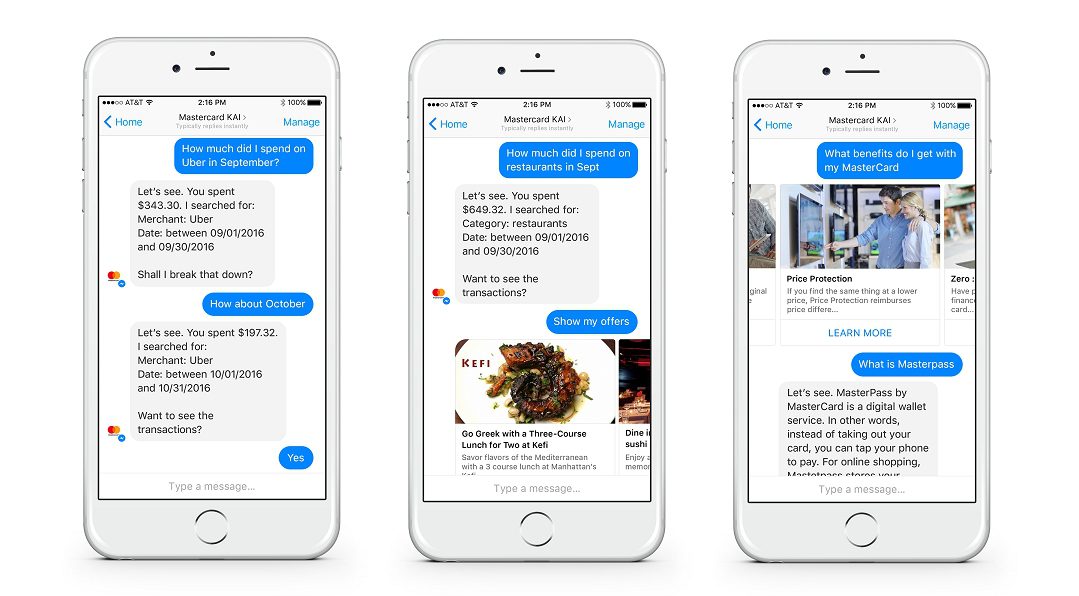Natural language-powered chatbots and voice assistants such as Alexa and Siri are gaining traction for many retail-related tasks: 66% of U.S. consumers use voice or text agents in their daily lives, and 21% use voice or text agents to shop, pay bills, bank online or send money, according to a report from Mastercard and Mercator Advisory Group. This figure is likely to go higher, since consumer awareness of conversational commerce is climbing: 87% of shoppers are aware of these technologies and are beginning to grasp their benefits. So retailers have plenty of chances to experiment with conversational commerce.
Thus far, only 16% of consumers use conversational commerce platforms to initiate payments for goods or services. However, these early adopters aren’t just experimenting. The data suggests that they are forming new purchasing habits, the most common being using text or voice commands to order food or beverages and performing general e-commerce activities. In fact, approximately 60% of these early adopters perform transactions via natural language processing (NLP) weekly, or even more frequently.
The early adopter segment has identified different benefits for voice and text: Those preferring voice agents for purchasing activities cite ease and speed over texting, while those preferring text agents cite text’s accuracy compared to voice as well as privacy while in the presence of others as critical differentiators.
Among those consumers that are open to using conversational agents in purchases, 37% would prefer to use a card previously set up with the merchant (i.e., a card on file) and 21% would prefer to add card information at time of checkout. Conversational transactions are likely to create habits and include repeat purchases that are streamlined by using stored payment information.
Mastercard and Mercator surveyed 3,000 U.S. consumers to discover how virtual assistants have already started changing how they engage and interact.
Security And Privacy Are Top Concerns Despite Early Enthusiasm
While more than half of the survey respondents agree that voice agents and text agents will be common means of interaction within five years, even the early adopters still have concerns about the technology. Security and privacy are two sensitive areas — more than 70% of users surveyed are concerned their payment cards could be compromised; that personal information might reach fraudsters; or that too many companies would solicit their business.
While 65% of virtual assistant users are satisfied with text overall, only 53% are satisfied with its privacy and 51% are comfortable with the security. On the voice side, 60% are satisfied overall, with privacy and security satisfaction dipping to 41% and 45%, respectively.
Potential users of voice and text assistants will still need some convincing to try these technologies. At this still early stage of adoption, 34% of potential users say that no improvement to the experience could motivate them to try these technologies.
Among all respondents, the top improvements that would motivate shoppers to use NLP-powered virtual assistants include:
- Connecting human operators via text (30%) or voice (34%);
- Password/code for purchases via text (25%) or voice (28%); and
- Relevant responses, or a solutions list via text (24%) or voice (25%).
“Over time, conversational agents will be able to accept cards more easily by simplifying how users receive prompts, notifications and feedback,” said Kiki Del Valle, SVP of Commerce for Every Device at Mastercard in a blog post. “By sharing consumers’ expectations with natural language processing interfaces, we can help develop and modify standards for new technologies and deliver safer and more seamless user experiences.”













